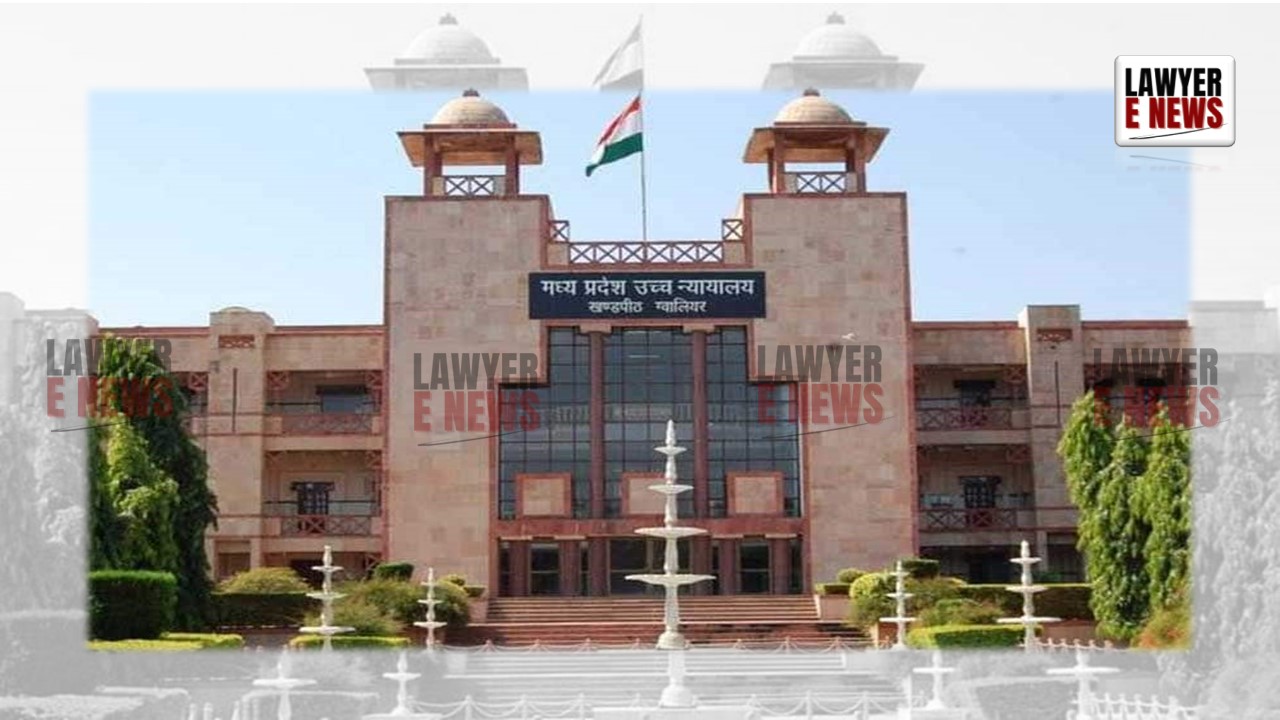-
by Admin
15 February 2026 5:35 AM



"An unstamped and unregistered agreement is inadmissible for any purpose, including collateral ones," held the Madhya Pradesh High Court while dismissing a petition under Article 227 of the Constitution. The Court upheld the appellate court's order, which had set aside a trial court’s decision granting a temporary injunction in favor of the petitioner.
Justice Pranay Verma dismissed the plea of the petitioner, Kailash, emphasizing the mandatory requirement of stamp duty and registration under Section 35 of the Indian Stamp Act, 1899, for an agreement to be admissible as evidence.
"Unstamped Documents Cannot Be Basis for Injunctive Relief"
The petitioner, Kailash, had sought specific performance of an agreement to sell dated November 1, 2022, allegedly executed by the respondent, Bhagwatilal. Along with the suit, he filed an application under Order 39 Rule 1 and 2 of the CPC seeking a temporary injunction to restrain the respondent from alienating the suit property.
The trial court granted the injunction, relying on the agreement to sell, which mentioned an earnest money payment of ₹50,000. However, on appeal, the District Judge, Badnawar, reversed the order, observing that the agreement was neither stamped nor registered and, therefore, inadmissible under Section 35 of the Indian Stamp Act. The appellate court also noted that the alleged agreement involved a significant sum of ₹36,11,000 but was drafted on plain paper with no reference to possession being handed over.
The High Court upheld the appellate court's reasoning, stating:
"An agreement to sell, when neither stamped nor registered, cannot be considered for any purpose, even at the stage of granting interim relief."
"Stamp Duty is a Prerequisite for Considering Injunction Applications"
Justice Pranay Verma underscored the legal principle that an unstamped document cannot be admitted as evidence, even for limited or collateral purposes. The Court cited the Supreme Court’s decision in Avinash Kumar Chauhan v. Vijay Krishna Mishra (2009) and reiterated that non-compliance with stamp duty and registration renders a document inadmissible.
The Court emphasized:
"Payment of stamp duty is a condition precedent for considering any prayer for injunction. Unless duty is paid, the document shall not be admitted in evidence for any purpose, including collateral purposes."
The petitioner’s reliance on the unstamped agreement to establish a prima facie case was therefore deemed untenable.
"Balance of Convenience and Prima Facie Case Absent Without Valid Agreement"
In addition to the inadmissibility of the agreement, the Court noted the absence of a prima facie case. The petitioner alleged that he had paid ₹50,000 as earnest money for a property valued at ₹36,11,000 but failed to produce any supporting evidence apart from the inadmissible agreement.
Further, the agreement contained no recital regarding the delivery of possession of the suit property, weakening the petitioner’s claim. The Court observed:
"Without a valid agreement to sell, the petitioner cannot establish a prima facie case or demonstrate balance of convenience and irreparable injury."
"Appellate Court’s Reversal of Trial Court's Injunction Was Justified"
The High Court validated the appellate court’s decision to overturn the trial court’s grant of an injunction. It emphasized that courts cannot rely on invalid documents while granting interim relief. The Court referred to its earlier decisions in Amit Dixit v. Smt. Sandhya Singh and Milind Baghade v. Ali Asgar Khamoshi, which held that unstamped agreements cannot form the basis for injunctions.
"An unstamped and unregistered agreement is devoid of legal sanctity. Granting an injunction based on such a document would defeat the purpose of statutory provisions mandating stamp duty and registration."
Judgment: Petition Dismissed, Appellate Court Order Upheld
The High Court dismissed the petitioner’s plea, holding that the appellate court acted in accordance with established legal principles. The trial court’s grant of a temporary injunction was deemed erroneous as it was based on an inadmissible document.
Justice Pranay Verma concluded:
"The appellate court’s refusal to act on an unstamped and unregistered agreement is legally sound. The petition lacks merit and is hereby dismissed."
Date of Decision: January 6, 2025
